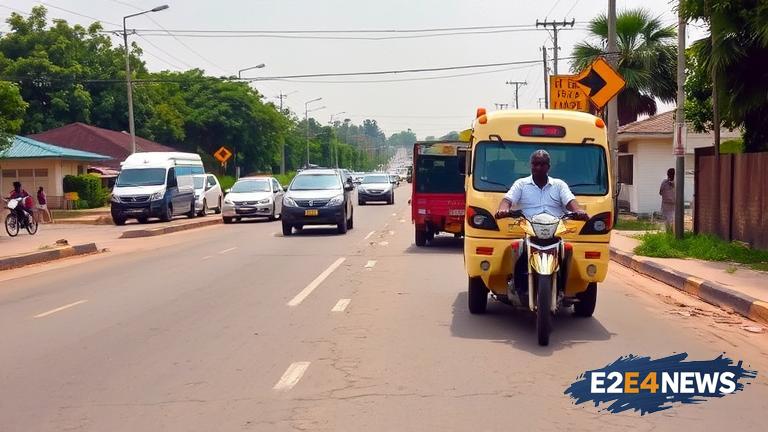Ghana is grappling with a severe road safety crisis, resulting in the loss of eight lives daily. This alarming statistic has sparked widespread concern and outrage, with many calling for a national emergency response to be implemented. The country’s roads have become a death trap, claiming the lives of innocent people, including pedestrians, drivers, and passengers. The causes of these accidents are multifaceted, ranging from reckless driving and speeding to poor road conditions and inadequate traffic enforcement. Despite efforts by the government and other stakeholders to improve road safety, the situation remains dire. The Ghanaian public is demanding urgent action to be taken to prevent further loss of life. The National Road Safety Commission (NRSC) has been tasked with developing and implementing strategies to reduce the number of accidents on the country’s roads. However, the commission faces significant challenges, including a lack of resources and inadequate funding. The government has been criticized for not doing enough to address the issue, with many accusing it of being complacent and indifferent to the plight of road users. The opposition has also weighed in on the issue, calling for a more comprehensive approach to road safety. Civil society organizations and advocacy groups have also joined the chorus, demanding that the government takes concrete steps to address the crisis. The road safety crisis in Ghana has significant economic and social implications, with the cost of accidents estimated to be in the millions of Ghanaian cedis. The human cost is also immense, with families and communities being torn apart by the loss of loved ones. The issue has also sparked a national conversation about the need for a cultural shift in attitudes towards road safety. Many Ghanaians are calling for a change in behavior, with a focus on responsible driving and adherence to traffic rules. The media has also been criticized for not doing enough to highlight the issue, with many accusing it of being sensationalist and focused on other news stories. However, in recent times, there has been an increase in coverage of road safety issues, with many outlets running campaigns and features on the topic. The international community has also taken notice of Ghana’s road safety crisis, with organizations such as the World Health Organization (WHO) and the United Nations (UN) offering support and guidance. Despite these efforts, the situation remains critical, and urgent action is needed to prevent further loss of life. The Ghanaian government must take a proactive approach to addressing the issue, working with stakeholders to develop and implement effective strategies to reduce the number of accidents on the country’s roads. This includes investing in road infrastructure, improving traffic enforcement, and launching public awareness campaigns to promote responsible driving. The public also has a critical role to play, by adhering to traffic rules and regulations, and reporting incidents of reckless driving. Only through a collective effort can Ghana hope to reduce the number of accidents on its roads and prevent the loss of innocent lives. The road safety crisis in Ghana is a national emergency that requires immediate attention and action. It is time for the government, stakeholders, and the public to come together to address this critical issue and ensure that the country’s roads are safe for all users.
